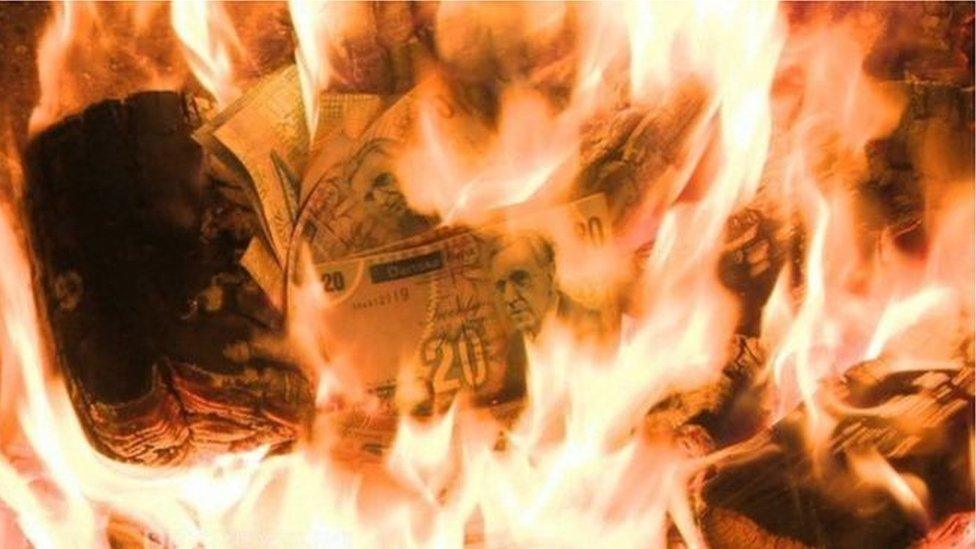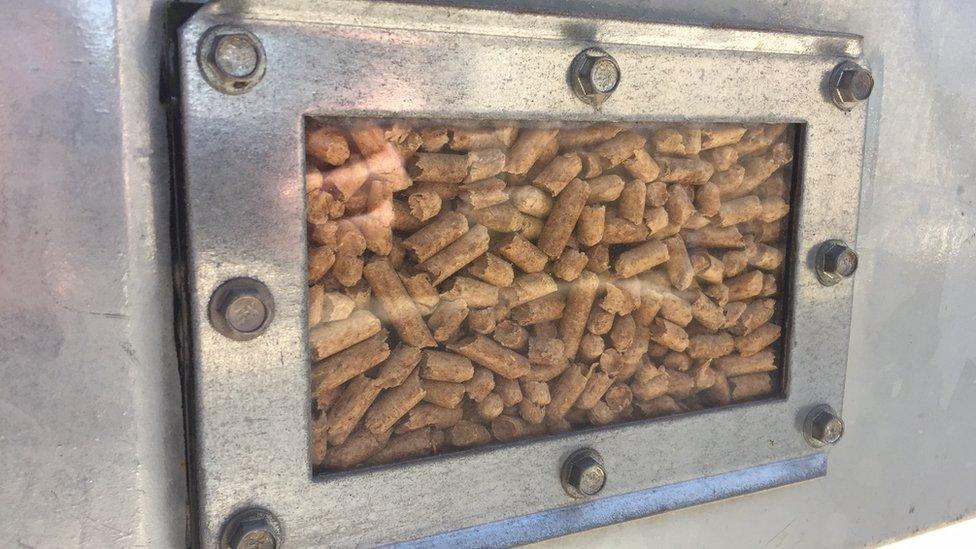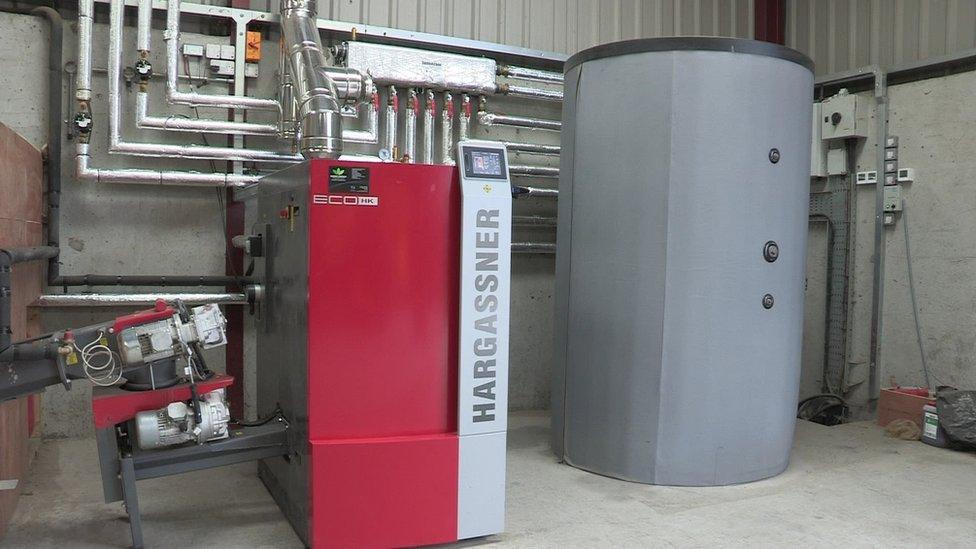Foster RHI letter subject of 'media speculation'
- Published

The inquiry was told the letter to banks had been written by one of Arlene Foster's officials and sent without amendment by Mrs Foster
A letter sent by Arlene Foster to banks was the subject of "media speculation" and "innuendo", the Renewable Heat Incentive Inquiry has been told.
On Tuesday the inquiry was told that in fact it had been written by one of her officials, Fiona Hepper, and sent without amendment by Mrs Foster.
Mrs Foster was the enterprise minister.
The letter was intended to encourage banks to lend to businesses who wanted to invest in renewable technologies but were facing resistance from the banks.
The RHI scheme subsidised the cost of fuel to encourage the use of renewable heating systems.
But the fuel cost far less than the subsidy users were receiving, meaning they could earn by burning more fuel.
The inquiry was set up to investigate the circumstances surrounding the initiative, after its costs spiralled.
Conspiracy theory
On Tuesday, it heard heard that the letter had been prompted by a meeting of an interdepartmental group months before the RHI scheme launched in Northern Ireland.
Officials there discussed problems firms were having in getting funding.
Mrs Foster was at the meeting and suggested she write to the main institutions.
She said she would explain the rationale behind a range of renewable energy grants and schemes.
The inquiry's junior counsel, Joseph Aiken, said the letter's motive had been the subject of much media commentary.
"I think the suggestion was that this was part of the conspiracy theory," he said.
"That it was clearly known that RHI was a vehicle to get more money that you should be getting and this was an encouragement to the banks to get into the scheme and get that money."
Chairman Sir Patrick Coghlin said there had been a "fair bit of media speculation from time to time" and asked whether journalists would have had access to the bank letter.
Mr Aiken said while they would have seen the letter they weren't aware of the sequence of events which prompted it.
Disturbing deja vu
Sir Patrick said even the letter showed that it was "highly unlikely" that it formed part of a such a conspiracy.
The letter was drafted for the minister by Mrs Hepper in her capacity as head of Energy Division.
It had been passed by her special advisor Andrew Crawford and Mrs Foster herself without amendment before being issued to the banks in January 2013.
Earlier, the inquiry was told it would hear evidence of "disturbing deja vu" in relation to the flawed green energy scheme.
Mr Aiken said the inquiry would be told about potential missed opportunities to fix it before it ran out of control in 2015.
A lack of cost controls meant that when applications spiked that Autumn there was no way of managing the huge budget over-commitment.
Mr Aiken was opening the second phase of the inquiry's work.
It will look at events between the launch of the Northern Ireland non domestic scheme in November 2012 and July 2015.
He compared the scheme here to an equivalent one in Great Britain.
He said between 2012 and 2015 there'd been 10 sets of regulations introduced in Great Britain, some of which addressed the issue of cost controls.
'No equivalent reaction in Northern Ireland'
In Northern Ireland by contrast there'd been only one set, to extend the scheme to domestic properties.
While the 2013 public consultation about the extension of the scheme here included a cost control option, it was not introduced.
Mr Aiken said had it been "the events of 2015 and 2016 may have been considerably different".
He said while controlling costs had been to the fore in the Great Britain schemes there appeared to be "no equivalent reaction in Northern Ireland".
The inquiry has already heard that officials here were determined to mirror the Great Britain scheme as closely as possible in order to minimise administration costs.
- Published7 December 2017

- Published30 January 2018

- Published17 January 2017
